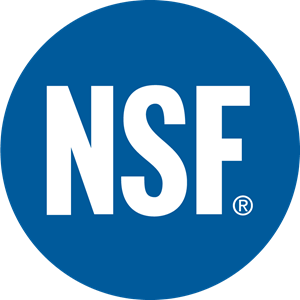
The standards for good manufacturing practices and identifying hazards and potential contamination sources in the food manufacturing industry are becoming stricter, placing a premium on consumer safety. As a result, more and more food manufacturing companies understand and appreciate the need to use Food Grade Lubricants. While it seems easy for companies to shift their purchase and usage away from industrial lubricants, a big challenge is the lack of knowledge of the end-users on what a legitimate Food Grade Lubricant is. Unscrupulous lubricant vendors with false claims of being ‘food grade’ also do not help the situation.
This comprehensive guide will explore how food grade lubricants ensure production efficiency and safety in challenging processing environments.
Importance of Food Grade Lubricants
Food grade lubricants or greases are types of industrial lubricants that primarily do the core functions of an industrial lubricant while ensuring the safety on food processing environments where there is some possibility of incidental food contact. They must meet safety standards, making them made from base stocks and additives safe for incidental food contact when applicable.
Food grade lubricants enhance and protect key components from rust, corrosion, and friction, while eliminating the risk of food contamination. While food manufacturing companies are already shifting from industrial lubricants to food-grade lubricants, challenges arise from some vendors’ lack of knowledge and lubricant suppliers’ false claims.
While it seems easy for companies to shift their purchase and usage away from industrial lubricants, a big challenge is the lack of knowledge of the end-users on what a legitimate food grade lubricant is. There is a growing demand for food grade grease in the Philippines, spurred by the rapid expansion of the food processing sector.
The NSF International in a Nutshell
The National Sanitation Foundation International is a non-profit organization certifying food grade lubricants. Their process includes product formulation review, testing, plant audits, and certification, ensuring the legitimacy of these products.
NSF is crucial in enhancing public health and safety across food production. The NSF establishes industry standards, product protocols, and guidelines by uniting industries, consumers, and regulators. It tests and certifies products to these standards globally, offering safety audits and developing over 80 standards for food, water, indoor air quality, dietary supplements, consumer products, and environmental safety.
NSF also provides sustainability solutions and education programs worldwide across the food, water, and consumer goods sectors.
NSF Classifications of Food Grade Lubricants

Understanding food grade lubrication classifications helps ensure compliance with regulations and enhances consumer safety during incidental contact because of leakage or contamination errors.
NSF categorizes lubricants used in food and beverage processing facilities into three main types:
H1 Lubricants: H1 lubricants are tasteless, odorless, physiologically inert, and suitable for incidental contact with food products up to 10 ppm. They are used in machinery like pumps, conveyor belts, and mixers and for processes such as canning, blending, cooking, and bottling.
Using NSF H1-registered lubricants in food and beverage facilities prevents potential contamination. Hazardous substances near food applications can harm public health, so selecting a quality H1 lubricant minimizes risks and ensures equipment longevity. These, in minimal amounts are safe for incidental human consumption, making NSF-certified H1 products from reputable manufacturers, ideal choices.
H2 Lubricants: H2 lubricants are food grade but not food safe, designed for machinery like forklifts that do not directly contact food, beverages, or pharmaceuticals. They meet NSF H2 certification standards, ensuring they are free from carcinogens, mutagens, teratogens, mineral acids, and heavy metals. These lubricants are used in areas where direct contact with food products is avoided.
3H Lubricants: Also known as soluble or edible oils. These are additives used in food-grade products, typically edible oils like corn, sunflower, soybean, or cottonseed oil, and are safe for human consumption. They are biodegradable, meet FDA regulations, and are recognized as safe by experts, exempting them from food additive tolerance requirements. 3H lubricants are used to clean and prevent rust on equipment such as hooks, conveyor belts, and trolleys.
Verifying Food Grade Lubricants
To verify a lubricant’s food-grade status, check the NSF website. Legitimate products will display the NSF symbol and a unique registration number.
Achieving NSF certification shows a business’ commitment to public health through proper sanitation and the design of equipment and facilities.
Choose Fluid Solutions for Your Food Grade Lubricant Needs
For 16 years, Fluid Solutions has been a trusted lubrication partner across industries, including food and beverage, agriculture, manufacturing, and power generation.
Our Food Grade Greases are specialized lubricants designed for the unique demands of the food industry, ensuring machinery operates smoothly while adhering to strict food safety standards. These greases play a crucial role in preventing friction and wear on equipment surfaces, contributing to the efficient and hygienic operation of machinery in food processing environments. All our lubricants come with NSF certification to ensure optimal performance and safety for your food processing equipment.
Looking for quality food grade grease in the Philippines? Contact Fluid Solutions at (02) 8370 5928 / (0917) 894 9156 or email us at inquiry@fluidsolutions.com.ph to learn more about how we can enhance the performance and longevity of your equipment. You can also reach us via our official website or social media pages for any food grade grease concerns.


